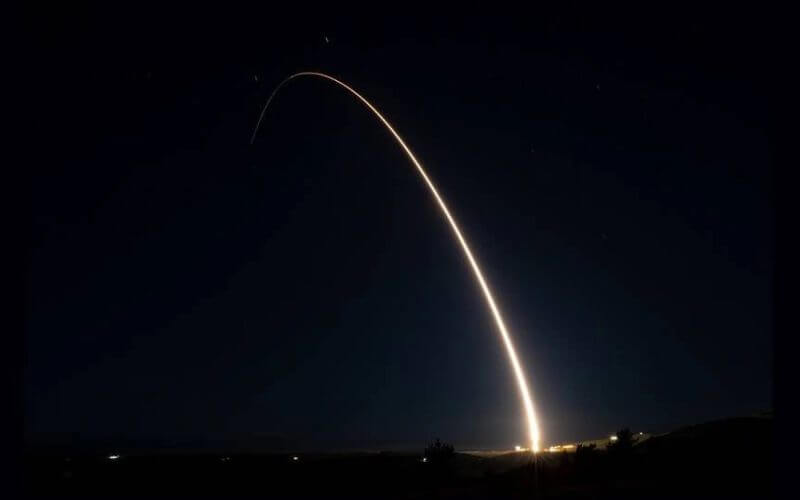The United States Air Force test-launched an intercontinental ballistic missile into the Pacific Ocean neighborhood of its adversaries in China and North Korea late Thursday as tensions among nuclear powers continue to escalate.
According to reports, Air Force Global Strike Command described the launch of an unarmed Minuteman III missile as " routine" and designed to reassure allies while acknowledging the growing harsh language from American adversaries in recent weeks.
In a statement to reporters, Air Force General Thomas A. Bussiere explained that the purpose of firing the missile was "to demonstrate that the U.S.' nuclear deterrent is safe, secure, reliable and effective to deter twenty-first-century threats."
"A test launch displays the heart of our deterrence mission on the world's stage," said the unit commander, "assuring our nation and its allies that our weapons are capable and our airmen are ready and willing to defend peace across the globe at a moment's notice."
The missile's payload flew more than 4,000 miles from Vandenberg Air Force Base on the California coast to the Kwajalein Atoll in the Marshall Islands. Officials said the launch was not the "result of current world events" and that similar tests have occurred more than 300 times before as growing concern about the potential for conflict involving nuclear warheads continues to mount.
In Beijing, the Communist government has warned of the dangers of a new arms race, blasting American officials and political rhetoric that increasingly views China as the main threat. On Wednesday, officials in China warned that tensions between Beijing and Washington are deteriorating due to President Joe Biden's shooting down of what officials in Beijing describe as a weather tracking satellite. According to American military and intelligence officials, the device was a Chinese spying satellite monitoring military sites in the U.S.
While China continues to increase its economic and military resources, North Korea also continues to strengthen its nuclear program, creating missiles and warheads capable of attacking South Korea and other pro-America Asian countries next door. In Congress, House Republicans continue to call on the Biden administration to get tough on China and strengthen allies like Taiwan.
Related Story: China Surpasses U.S. in Intercontinental Missile Launchers, Military Warns Congress









